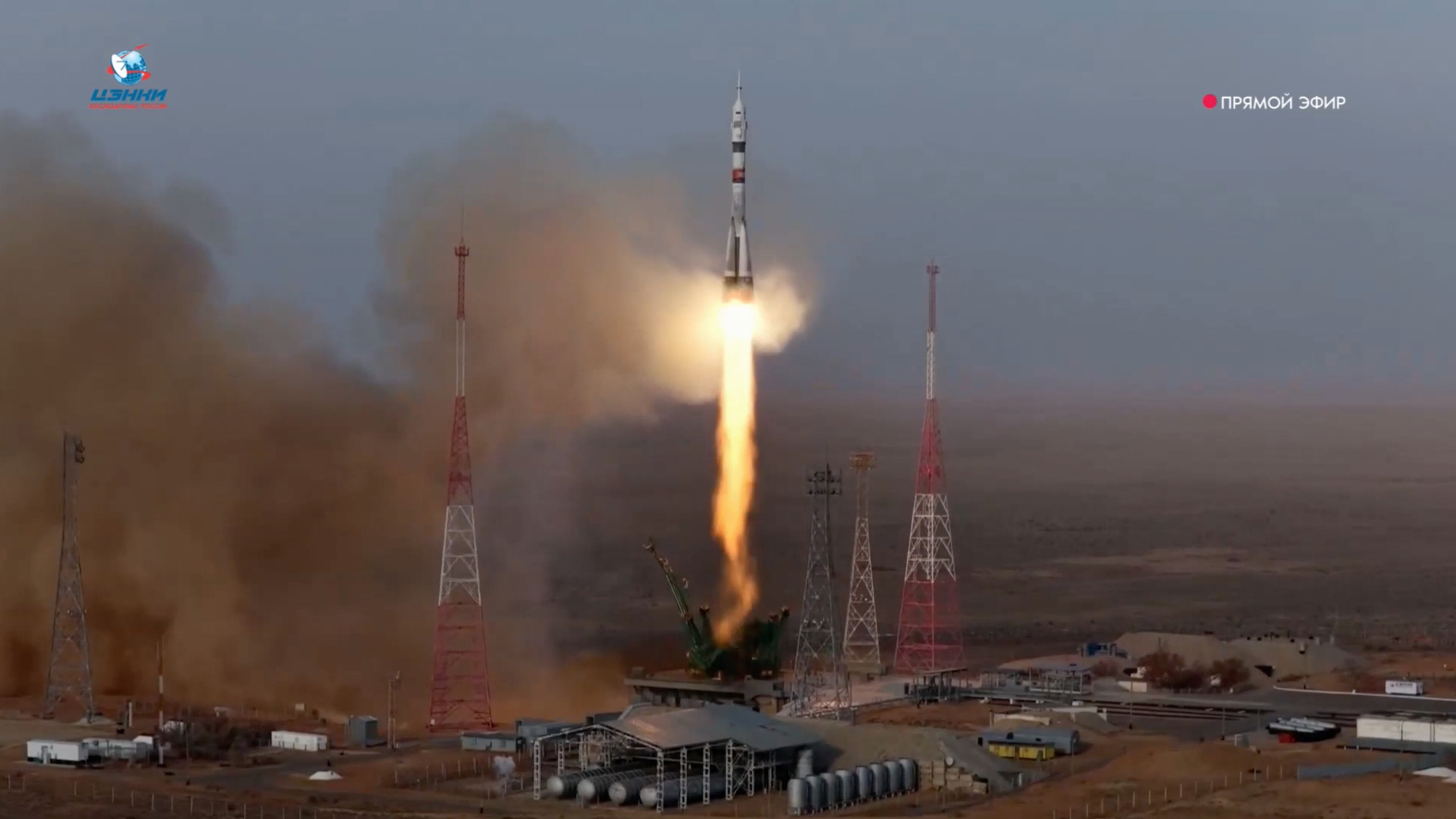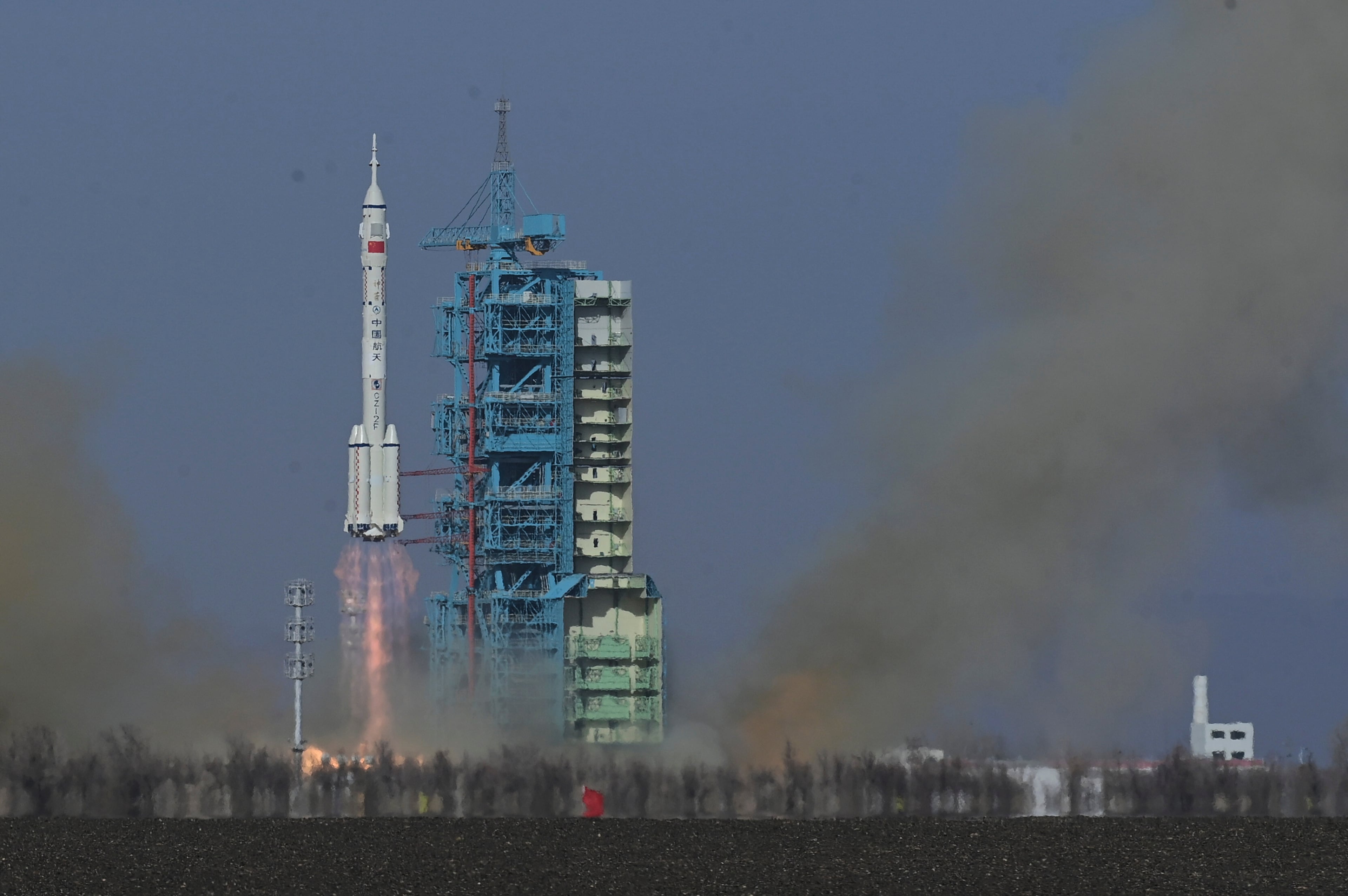US-Russian crew of 3 starts 8-month mission on the International Space Station

MOSCOW (AP) — A U.S.-Russian crew of three began a mission on the International Space Station after being launched there on a Russian spacecraft Thursday.
A Soyuz booster rocket lifted off at 2:27 p.m. from the Russia-leased Baikonur launch facility in Kazakhstan to put the Soyuz MS-28 into orbit.
The spacecraft carried NASA astronaut Chris Williams and Russian crewmates, Sergei Mikaev and Sergei Kud-Sverchkov. The craft docked at the International Space Station at 5:34 p.m.
The three are expected to spend about eight months at the orbiting outpost. NASA said this is the first spaceflight for Williams, a physicist, and Mikaev, a military pilot. This is the second flight for Kud-Sverchkov.
Already on the space station are NASA astronauts Mike Fincke, Zena Cardman and Jonny Kim, Japan Aerospace Exploration Agency’s astronaut Kimiya Yui and Russian cosmonauts Sergei Ryzhikov, Alexei Zubritsky and Oleg Platonov.
Williams will conduct scientific research and technology demonstrations aimed at advancing human space exploration and benefiting life on Earth, NASA said.

